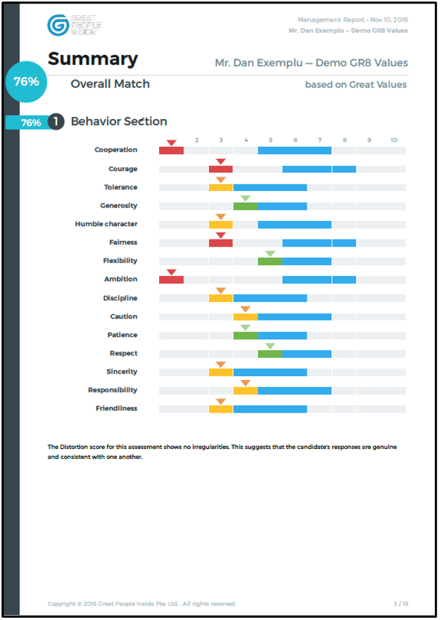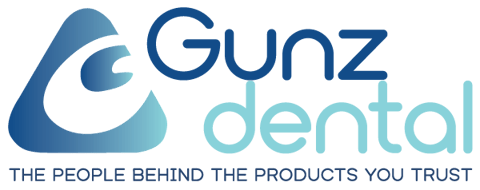Many of us can easily recall precisely when key events occurred around the world and in our own lives. It is fair to say that the current pandemic is one of those events and is well and truly etched in our memories for as long as we shall live.
Depending on what state you are in, its likely that in March 2020 you received an email communication that stopped you in your tracks. The outcome was closure of the surgery or at best curtailed opening hours. Except for Victoria, most states have since relaxed the restrictions imposed, however the constant media reminders and escalated infection control procedures practiced daily in the surgery are a constant reminder of what running a dental practice looks like in the year 2020.
This period marks the greatest challenge to leaders. Many of your patients and employees are likely worried about their future. Now more than ever, your people and your patients need the steady hand and re assurance of your leadership.
The problem though, is that dental practice leaders are human too and are not immune to the anxiety, stress and sleepless nights caused by the uncertainty we have lived through for the best part of this year.
Right now, as a dental practice leader you have a lot on your plate and sometimes it may even seem too much. This can impact your ability to think clearly or may cause you to lash out (metaphorically) at team members or even become short tempered with patients.
But how can you adapt your leadership to cope with the current demands? To help, we have outlined five practical approaches you can adopt
- To be a successful leader we must first lead ourselves
The current situation calls for in-depth personal reflection to truly understand who we are, how we got to where we are today and what our natural tendencies and behaviours are when we are in a crisis and under pressure.
Self-awareness is one of the key elements of emotional intelligence (EI), which Daniel Goleman, a renowned psychologist, refers to as a person’s ability “to identify and manage their emotions and identify and influence others’ emotions”
Self-awareness provides a leader with key personal insights and enables them to self-manage those circumstances when triggered by a situation, an event, or a personal interaction. At the end of the day, we cannot control the occurrence of “stuff” that triggers us, but we do get to choose our reaction. As leaders we are constantly on display, and our people and our patients are making decisions about us and our leadership based on what they observe.
- Get “real’
Many leaders tend to think that showing vulnerability is a weakness- in fact, it is a strength of leadership. When leaders stop wasting energy trying to conceal what they think other people should not see, it allows them to start showing their “real” self. By accepting vulnerability as a strength, leaders can stop worrying about having every answer and realise it is okay to not know. True wisdom comes from stepping away from the fear of not knowing.
The idea of being “real” was popularised by American management guru Warren Bennis in his 1989 book On Becoming a Leader, and gained further attention through the 2003 publication Authentic Leadership by Bill George, a professor at the Harvard Business School. Such leaders know and accept themselves and present a genuine and empathetic face to their teams.
They communicate truthfully and directly, and lead with the heart, not just the mind. But they are no softies. Truly ‘real” leaders always keep their goal in mind – the good of the organisation they are responsible for and lead. Mission-driven, they can separate out personal feelings from work imperatives.
- Model leadership behaviour
Peter Drucker a renowned management consultant once said that “Culture eats strategy for breakfast”. He did not mean that a great strategy is not important but rather that an empowering culture was a more certain route to organisational success.
Culture can be described “as the way we do things around here”. It includes leadership, communication, people, policies, vision, values, onboarding, and hiring and firing processes. Especially during the current situation, people like to work for and with leaders and managers who make them feel good, and these positive feelings result in improved performance. When leaders and managers do not promote these positive feelings throughout the practice, performance declines and mediocrity increases.
Most of us are familiar with the proverb that “a fish rots from the head”, which means that leadership is the root cause of an organisation’s failure and demise. This is true whether that organisation is a country, a company, or a dental practice- toxic leadership can poison the emotional climate of a practice quicker than you can say pass me the probe! Modelling the type of leadership behaviour that you expect in your practice is critical as it sets the tone, creates the practice environment, and builds your unique culture
- Communicate
George Bernard Shaw once said “the greatest issue in communication is the illusion it has taken place”
As we know, great communication is much more than just getting your message across. It has to do with understanding the emotion and the intentions behind the information contained in the message. Leaders need highly advanced communication skills, not only to clearly convey a message, but to also listen in a way that gains the full meaning of what is being said and makes the other person feel heard and understood.
This is where favouring your right ear is important. While this may seem quite unusual, experts tell us that the left side of the brain is where the primary processing centres for both speech comprehension and emotions happens, and as the left side of the brain is connected to the right side of the body, favouring your right ear can help you better detect the emotional nuances of what someone is saying.
Many of us despite our best efforts to get the message across, on occasions find that the listener has heard differently to what was intended, the message somehow was blown off course and landed on a different landing strip than we intended! Adopting a non-judgemental approach and crafting powerful questions can help a leader explore deeply and increase their success of more effective communication.
- Get data, get results

Leading others is difficult. It’s fair to say you would not purchase a significant piece of equipment without the benefit of objective data, so why would you attempt to lead your highly valued and costly team without the availing of benefits that scientific objective insights can provide you and your team?
Your practice team members are made up of vastly different personalities, all with their own unique passions, backgrounds, views, and work styles. With the best will in the world, misunderstandings and differences of opinion can create friction within the group.
Left unchecked, this can put a damper on performance and enthusiasm, leading to conflicts which may be hard to resolve. This is the last think you need right now. So, how can you harvest the best each team member has to give , using their attributes to maximum benefit, while managing those behavioural traits with the potential to upset team dynamics?
The answer is behavioural assessments, which give you detailed information about you and each of your employee’s skills, behaviour, and personality traits. These next generation of customisable smart tools from Great People Inside that we recommend, provide valuable pointers about the way employees can function to optimum capacity at work – both as individuals and within the team.
Your choice
We appreciate that every practice is unique, and that in the 21st century, dental practices invest in defining, developing and implementing that very specific culture, that state-of-the-art customer service, those distinguished values and dynamics that deliver their business advantage and success. In other words, we understand that a practice uniqueness and greatness cannot, and should not, rely on a “one size fits all” approach.
The assessments we recommend are unique as they offer a menu of more than 60 validated dimensions from which you choose to measure precisely what is important to you your business.
If you’d like to learn more, or if you would like a FREE trial, please click on this LINK and we will get back to you promptly.
David Leahy


